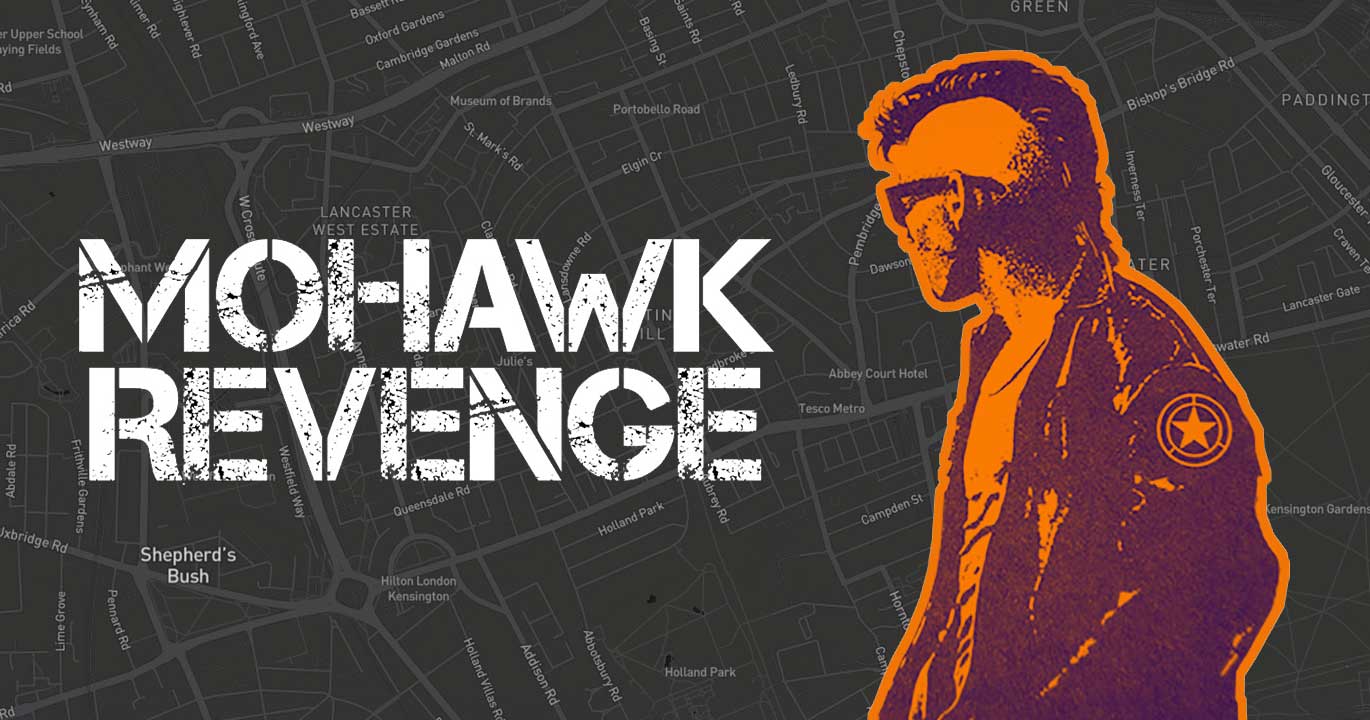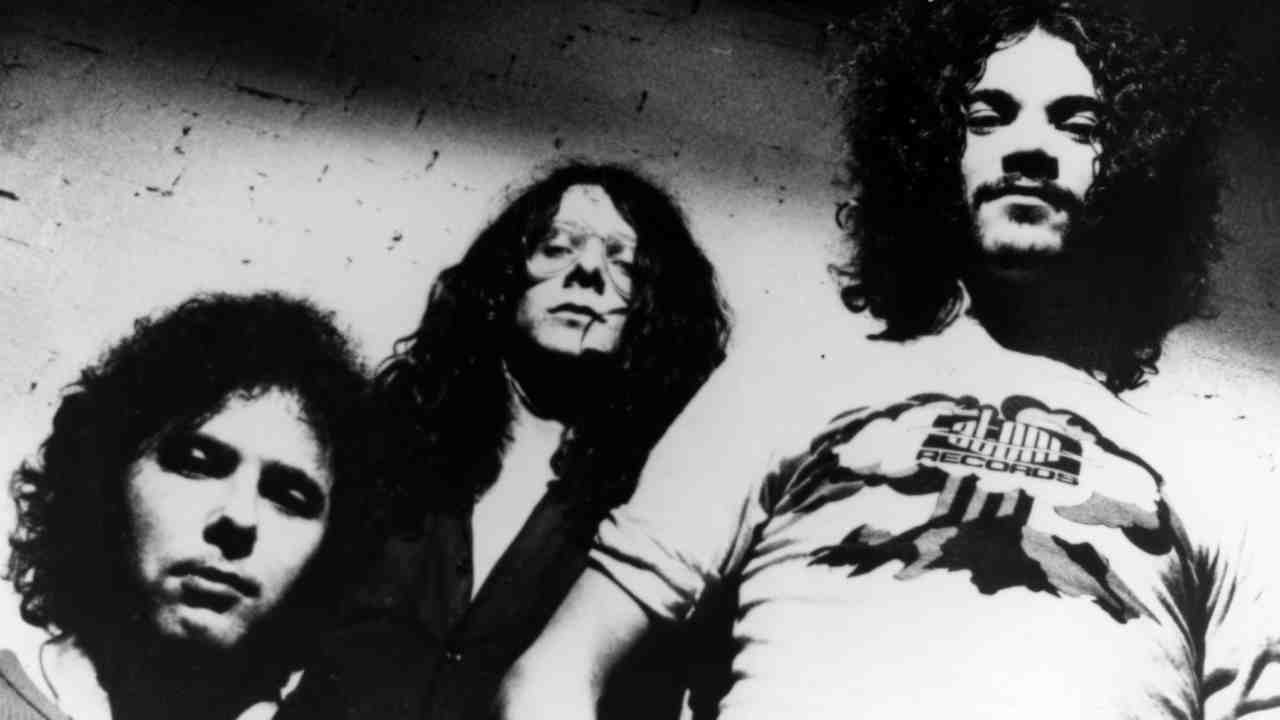Meet the guy who hated The Clash's last album so much he re-recorded it for them
Recutting The Crap: The story of one fan's quest to pluck victory from the final Clash LP’s jaws of defeat

Select the newsletters you’d like to receive. Then, add your email to sign up.
You are now subscribed
Your newsletter sign-up was successful
Want to add more newsletters?

Every Friday
Louder
Louder’s weekly newsletter is jam-packed with the team’s personal highlights from the last seven days, including features, breaking news, reviews and tons of juicy exclusives from the world of alternative music.

Every Friday
Classic Rock
The Classic Rock newsletter is an essential read for the discerning rock fan. Every week we bring you the news, reviews and the very best features and interviews from our extensive archive. Written by rock fans for rock fans.

Every Friday
Metal Hammer
For the last four decades Metal Hammer has been the world’s greatest metal magazine. Created by metalheads for metalheads, ‘Hammer takes you behind the scenes, closer to the action, and nearer to the bands that you love the most.

Every Friday
Prog
The Prog newsletter brings you the very best of Prog Magazine and our website, every Friday. We'll deliver you the very latest news from the Prog universe, informative features and archive material from Prog’s impressive vault.
When it comes to the worst-ever rock’n'roll botch jobs, The Clash’s 1985 death rattle Cut the Crap deserves special mention, alongside Chris Cornell’s ill-advised collaboration with Timbaland (Scream), Metallica’s ill-advised collaboration with Lou Reed (Lulu) and Lou Reed’s ill-advised collaboration with Lou Reed (Metal Machine Music).
Largely concocted by Joe Strummer and Clash manager Bernie Rhodes, Cut the Crap spat up a queasy gumbo of amateur-hour punk guitar and football chants laid atop a mess of inept drum programming, wedding-band funk bass, and cornball 80s synths. And as if that racket weren’t bad enough, the pair then overdubbed ‘found sounds’ like arcade noises and short-wave radio broadcasts at random, often overpowering the vocals.
What they forgot to include, however, were any actual members of Strummer’s post-Mick Jones Clash, most unforgivably their powerhouse new drummer Pete Howard. Not even original bassist Paul Simonon made the cut. In fact, the only good thing about Cut the Crap is that it made the original lineups’s flaccid swan song Combat Rock sound like a masterpiece in comparison.
But for many Clash fans who saw or heard recordings of the ‘84 lineup incendiary shows, the album was utterly inexplicable. Cut the Crap scrapped the live arrangements, then replaced the new band with synths and beatboxes, the very machines Strummer had publicly denounced partner Mick Jones for dicking around with in 1983. Henceforth, fans would have to content themselves with bootlegs of varying audibility to hear the original versions of Strummer’s Clash II songs.
But for one long-suffering fan, bootlegs were no longer enough. Since we now have the technology to let algorithms write fake Nirvana songs, German musician Gerald Manns (of punk/metal outfit Mutant Proof) set about to put modern technology to better use, undergoing one of the most ambitious fan remix projects ever attempted. And with his restoration, Mann has given long-suffering fans the nearest thing they will ever have to a Great Lost Clash Album.
Put simply, Mann digitally stripped Strummer’s vocal tracks from Cut the Crap, pasted them into his meticulous recreation of the band’s live arrangements, and created what is for all intents and purposes an entirely new work of art (retitled Mohawk Revenge, after a Clash t-shirt design).
Shorn of all the inept 80s studio scuzz, even the weaker tracks like Dirty Punk and Cool Under Heat sound more like classic British power-pop than 80s Oi, more The Kinks or Slade than The Cockney Rejects or The Anti-Nowhere League.
Sign up below to get the latest from Classic Rock, plus exclusive special offers, direct to your inbox!
You can clearly hear how Strummer’s Clash prefigured the rise of 90s Pop-Punk superstars like Green Day, Blink 182, and Rancid. Ironically so, given how critics dismissed the new Clash as reactionary and retrograde, failing to realise that their Arena Punk concept wasn’t retro, it was futuristic. That same concept would be filling arenas well after most of the silly poseurs the Inkies were shilling for in 1984 were long forgotten.
Classic Rock called on Manns to pick his brain about how this amazing project was conceived and achieved.

When did you get into the Clash?
I was more into the Ramones and the Sex Pistols, so when I heard the first Clash album I wasn't very impressed. But I bought the London Calling single and was flashed by the atmosphere and power of it. From then on, I became a huge fan.
What was your specific reaction when you first heard Cut the Crap?
Well, a friend of mine met Joe and Nick in Munich and asked them about the new album. She said they didn't seem too enthusiastic about it, so I was already a bit scared. When I finally got the LP in my hand, I noticed that some of my live favourites were missing. And then came the moment when the needle touched the vinyl. I couldn't listen to The Dictator 'til the end – it was too horrible – so I skipped to Dirty Punk. Then I played the record to my brothers, because I couldn't believe what I just heard.
How long did it take you to get the guitar parts down?
It took about a week per song. At first it was learning and rehearsing. I did that song by song. Then I recorded every guitar track twice to give it a fuller sound, so this took some time on top. Then I did the bass parts. After that I did all the fiddly bits, like solos and so on.
How did you program the drum parts?
First thing was to take a live version to find a speed that fits. Then I copied every beat into EZDrummer and split it into single tracks for bass drum, snare, toms and so on, then used a preset that sounded the most ‘1984’ to me. The last step was to ‘humanise’ the track, which shifts every beat slightly to give it a more human feel.
How long did they take to program?
It took about two afternoon sessions to program each song.
How did you isolate Joe's vocals?
My brother works as an audio engineer, so he helped me out with two different programs. The first is Izotope's RX8, the other is SpectraLayers. Some songs needed additional help, and I added backing vocals on the choruses to smoothen the football chants.
How did you get everything to sync up so perfectly?
The only good thing about Cut The Crap’s drum machine is that the speed isn't varying, so it was easy to find the BPM. From then on I used Adobe Audition to fit to the live speed.
Your arrangements for the songs that weren’t played live are uncanny; they really feel like that band’s style. How did you go about doing that?
The arrangements came very naturally, I think, because I had them in my mind for all the years. I also did those songs last, to gain a feeling for the typical arrangements. The solos I had to add I nicked from some Mick Jones solos.
What would you like to see happen with these recordings?
In my dream, Sony releases them as a regular album, but that was never my aim. I made them for my own, but after I played them to a friend he convinced me to spread the recordings to fans.
Have you been in contact with anyone from the Clash camp?
Not really. The closest is Ray Gange [Clash roadie who starred in the film Rude Boy], and he likes it. But it would be interesting to hear what the other guys think about it.

Well, then how about we start with Nick Sheppard, the only member of Strummer’s new Clash actually invited to the Cut the Crap sessions?
Nick has heard the remixes, and cited the stunning reggae revamp of the heretofore-unlistenable Play To Win as "genius," and his personal favourite. He also gave special praise to Gerald’s drum programming and cited his arrangements of Are You Ready for War and This is England as being "ridiculously close" to what the band had originally intended, though he felt the guitars "would have been more aggressive" on the Clash album.
Sheppard said, "All in all it’s a great and noble endeavour," but also lamented that it was "a bittersweet listening experience for me, as it definitely confirms that ‘what could have been’ would have cut the mustard."
As opposed to cutting the crap, certainly.
Chris Knowles is the author of the novel, He Will Live Up in the Sky. He is also the author of The Secret History of Rock 'n' Roll: The Mysterious Roots of Modern Music, the Eagle Award-winning Our Gods Wear Spandex: The Secret History of Comic Book Heroes (RedWheel Weiser), and the critically-acclaimed Clash City Showdown: The Music, The Meaning and The Legacy of The Clash. He's co-author of The Complete X-Files: Behind the Series, the Myths, and the Movies (Insight Editions), the authorised companion to the long-running TV series.

